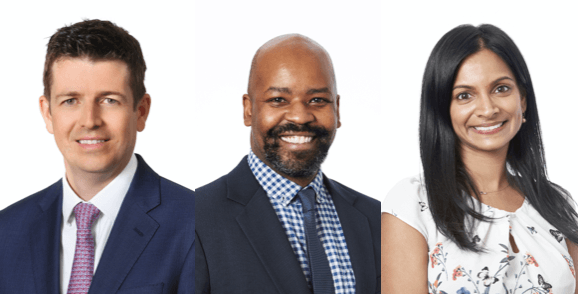In the current global Covid-19 climate, diversity and inclusion (D&I) is supremely important to business and those who have a strong foundation in D&I will be reaping the rewards when it comes to the wellbeing of their people. D&I speaks to the heart of taking care of our people.
The language of this crisis – unity, empathy, respect, trust, cooperation, and communication – is also the language of D&I. The world around us is unrecognisable and we have seen that Covid-19 is more than just a health pandemic. This situation is impacting economies, the environment, how industries operate, how resources are accessed and people’s wellbeing – depending on how individuals and groups are experiencing social distancing and lockdown measures.
Diversity teaches us that every individual will experience situations uniquely, and inclusion teaches us that we must be active in helping individuals belong. Creating a sense of belonging is challenging when you see people on a daily basis. It’s made all the more difficult to foster when we are working virtually.
We’ve all experienced isolation at the same time, but we haven’t experienced it in the same way. If you think about how different groups might experience isolation, you’ll see how important it is to keep in touch with them on more than just what they do for your business. Taking a few aspects of diversity and diving into them we can begin to see the specific challenges certain groups encounter. We also see the key aspects that businesses need to be mindful of when supporting their people.
- Gender: Parents more than ever are experiencing the challenges of juggling family life with their work and career. Many have dependents, both old and young, that they’ll struggle to care for without access to the help they had before Covid-19. There are noted rises in domestic violence, and challenges to otherwise harmonious relationships. Some people are going to have children in a pandemic without access to regular medical care. Whilst these challenges will affect both men and women, women are often impacted disproportionately.
- Race/ethnicity: We have seen reports that Covid-19 has a disproportionate effect on certain ethnic groups, from increased potential of illness in the black community to a rise in anti-Asian rhetoric around the globe.
- Social mobility: Covid-19 has a disproportionate impact on under-resourced areas of the country, and socioeconomically disadvantaged groups suffer from a range of challenges that those with economic means don’t. In the workplace, socioeconomically disadvantaged colleagues face challenges to working remotely that others may not, from a potential lack of technological infrastructure to suddenly being responsible for their extended family’s financial survival.
- LGBT+: Some of our LGBT+ colleagues might be isolated or locked-down in unsupportive family environments. Some may have to go back ‘into the closet’ depending on how their family or culture may feel about who they are.
- Disability: Weeks of isolation will pose challenges for us all to maintain our physical health and positive mental wellbeing. For anyone with a disability who might rely on carers, need medical care or medicine, isolation can present very real challenges to life.
Many businesses are asking themselves how they can stay connected to their employees and communities whilst we are more isolated from each other than ever before. While technology has provided some solutions to connectivity, it’s up to us to put humanity into it.
At Linklaters, we’ve encouraged our people to think about each member of their team, not just the ones they know well or that they’re currently working with on deals or projects. Find out how each other are, what we’re all finding challenging and we can do to create a sense of inclusion. Communicate trust in our people’s work, make space for their thoughts and opinions. Remind people that they are valued, and not just for the work they do, but for who they are.
Once the dust settles on Covid-19, and we emerge into a new normal, we will see people start to re-assess their values. D&I is important right now, as it always has and will be. The expectations on big businesses to behave responsibly will grow and people will be watching to see who does the right thing. It’s safe to assume that the businesses that will fare best will be the ones that put their people first.
David Martin is Global Diversity Partner; Daniel Danso is Global Diversity Manager; and Neha Rao is Client D&I and Engagement Manager at Linklaters
